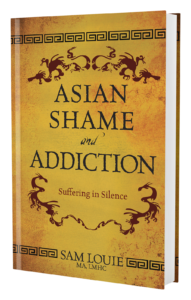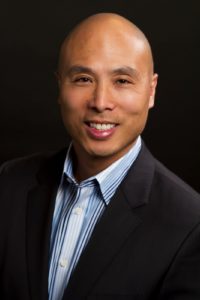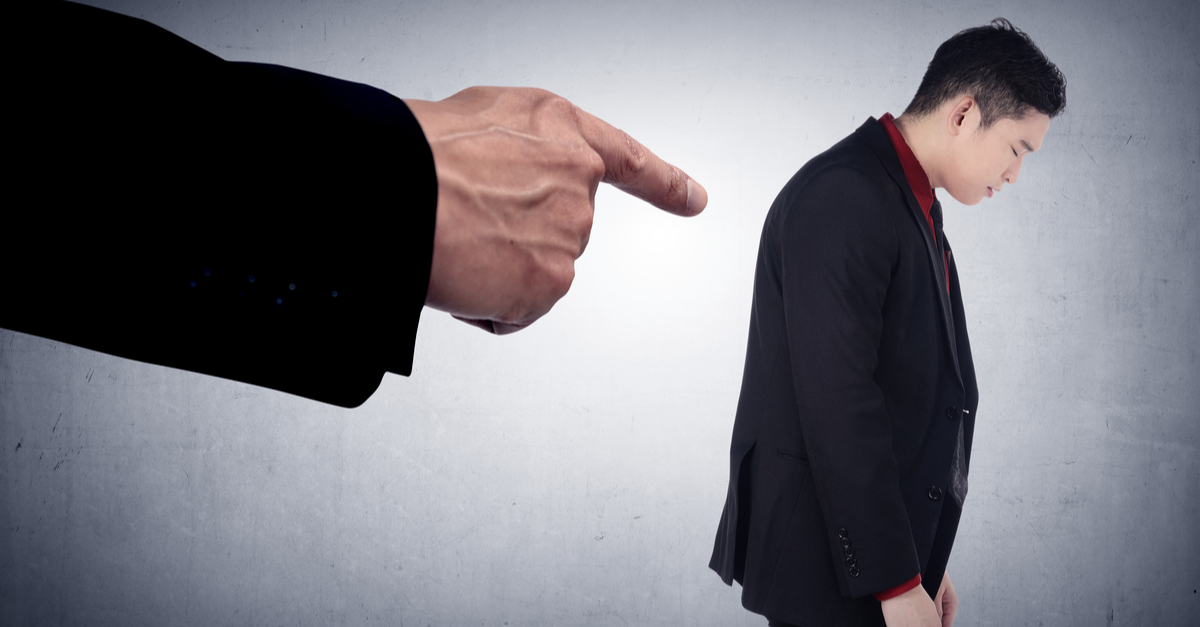By Sam Louie
When it comes to addictions, scant attention is given to Asians. Part of the limited attention lies in the age-old Asian custom of secrecy, silence, and shame. In Asian cultures, shame is used to maintain social order, conformity, acceptance, and identity. Shame is also used to shape behaviors. We are taught to never disgrace our families or ethnic heritage and to always bring honor to our family and ancestors.
At a young age, we’re indoctrinated to be strong and to not show any signs of weakness. Feeling weak or even a need for a minor amount of help can trigger intense feelings of shame. This sensibility is so strong and so ingrained that when we struggle with life issues (grief, depression, abuse, anxiety, etc.), we might never admit to the problem and seek assistance. It’s the ultimate humiliation (to not only ourselves but our families and our culture) to be weak. This makes admitting to ourselves, our families, and others that we cannot solve a particular problem on our own incredibly difficult.
Now imagine being Asian and trying to break free of an addiction. Whether the addiction is to gambling, drugs or alcohol, sex or pornography, or something else, most of us would much rather suffer in silence than break the cultural code of honor by acknowledging that we have a problem and need help.
The grip of shame is even tighter for those embroiled in sex or porn addiction. No other area is more misunderstood or shame-bound than sex. (This is true with most cultures, but to a greater degree in Asian cultures.) Sexuality is at the core of our humanity and cannot be cut off, yet tension and shame arise around even healthy sexual connection. And when Asians are trapped in sexual obsessions or compulsions that we can’t control, the shame can become overwhelming. Whether it’s a one-night stand, multiple affairs, visits to strip clubs, pornography, the use of prostitutes, or some other sexual fantasy/activity, the combined feelings of dirtiness, defectiveness, and weakness all race to the forefront. Thus, Asian sex and porn addicts see themselves as unlovable, worthless, and ultimately as failures to not only themselves but their family and ethnicity.
 This is an experience that I have both studied and lived. As the oldest son of Chinese immigrants, I was bestowed the obligation and responsibility to bring honor to my family. I was the one most expected to carry our sense of honor down to future generations. And as a first-generation Asian-American, this expectation to succeed was only heightened. So, when I stepped out into the American world of education, career, and marriage, I carried my own steep expectations plus the weight of my family and culture. When I failed to meet these lofty expectations, rather than accepting this, rather than asking for help, I chose to numb out with compulsive sexual behaviors. And, as eventually occurs with every sex and porn addict, my world crumbled. My wife caught me in the midst of my sexual fantasies, and I lost my marriage. In short order, my personal and professional lives collapsed completely. Everything I had worked so hard to achieve was gone. The dream was shattered—not just for me but for my parents and grandparents.
This is an experience that I have both studied and lived. As the oldest son of Chinese immigrants, I was bestowed the obligation and responsibility to bring honor to my family. I was the one most expected to carry our sense of honor down to future generations. And as a first-generation Asian-American, this expectation to succeed was only heightened. So, when I stepped out into the American world of education, career, and marriage, I carried my own steep expectations plus the weight of my family and culture. When I failed to meet these lofty expectations, rather than accepting this, rather than asking for help, I chose to numb out with compulsive sexual behaviors. And, as eventually occurs with every sex and porn addict, my world crumbled. My wife caught me in the midst of my sexual fantasies, and I lost my marriage. In short order, my personal and professional lives collapsed completely. Everything I had worked so hard to achieve was gone. The dream was shattered—not just for me but for my parents and grandparents.
Insecurities and fears exploded and swirled inside me. The emotions paralyzed me. The gut-wrenching cultural fear of failure and rejection had been realized. I was tormented beyond belief. I thought I had lost the meaning to life because I had lost the honor of my family and culture. The shame of letting down my loved ones, my community, and my ancestors wracked my soul.
The blessing from this was that it forced me to admit to and work on my addiction, including the underlying issues that drove it: childhood abandonment, emotional neglect, Asian shame, sexual shame, and other cultural forces that impacted my dysfunctional thoughts and behaviors. So, after years of suffering in silence, I finally acknowledged to myself and others that I was addicted to sex—pornography, prostitutes, sexual fantasies, etc.
Eventually, through therapy, I developed a new lens through which to view life. The dark shadow of sexual shame and secrecy was lifted, and, in time, this spurred me into a new career as a therapist specializing in Asian shame, sexual addictions, and recovery. Today, I am proud to be in recovery, and I am less driven by shame. But only because I suffered the ultimate personal and cultural humiliation of failing miserably, needing help, and asking for it.
 Sam Louie is a licensed mental health counselor with a private practice in Bellevue, WA, where he specializes in sex addiction and multi-cultural issues. Prior to counseling, he worked as an Emmy Award-winning television journalist, where he researched, produced, and reported on a number of stories related to psychotherapy, relationships, and addictions. He has also written a book, Asian Shame & Addiction: Suffering in Silence, that touches on the themes of Asian culture and addictions. For more information, visit his website: samlouiemft.com.
Sam Louie is a licensed mental health counselor with a private practice in Bellevue, WA, where he specializes in sex addiction and multi-cultural issues. Prior to counseling, he worked as an Emmy Award-winning television journalist, where he researched, produced, and reported on a number of stories related to psychotherapy, relationships, and addictions. He has also written a book, Asian Shame & Addiction: Suffering in Silence, that touches on the themes of Asian culture and addictions. For more information, visit his website: samlouiemft.com.
